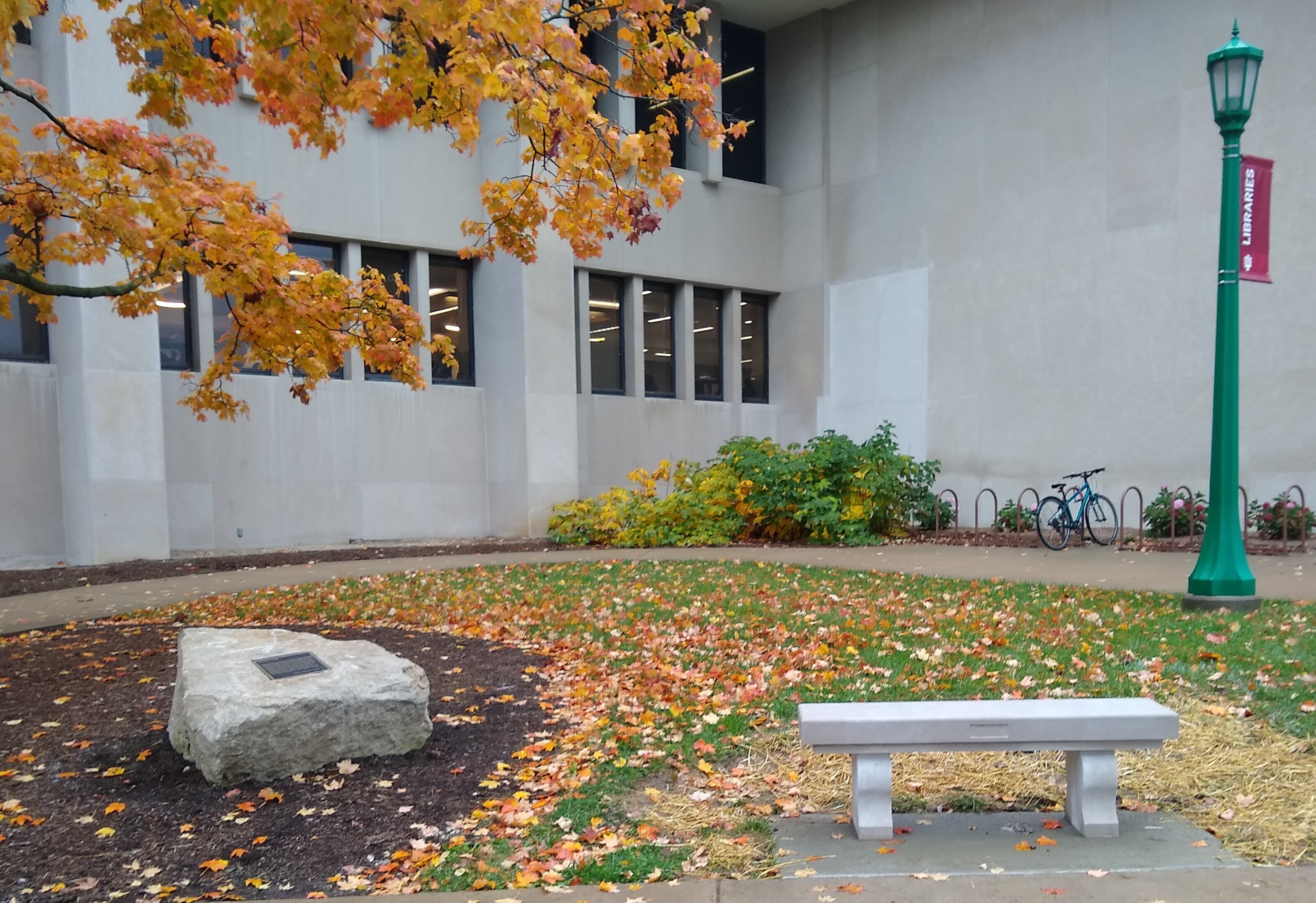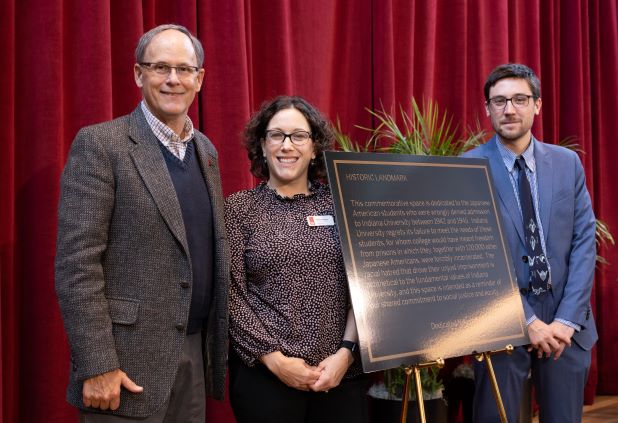Working with Director Kellams, Langowski read what was available digitally, and then would ask her for the next item he was looking for. By the time he became a Bicentennial intern, Langowski was working with James Capshew, IU historian, and then Bicentennial Archivist Kristin Browning Leaman.
When Langowski first reached out, “He was really interested in doing research on applicants that had been denied entry into Indiana University during WWII due to their being of Japanese descent,” Kellams remembered. He wanted to know if they had ever been given a formal apology. Several years prior to Langowski’s interest, students at the Archives worked on digitizing the Board of Trustees’ Minutes. The students discovered the minutes where the Trustees discussed denying Japanese American students admittance. Kellams says, “It was the very first time I had heard of anything about the ban.”
A lot of what Langowski needed was already digitized. However, he noticed a lot of cross-referencing, so Kellams helped him find those items. “We worked to give him access to these records,” Kellams clarified. “They were part of the university history. He was one of the first researchers that I was aware of that really dug into it. We were so impressed with Eric.”
Of all the documents he looked at, Langowski was most perplexed by the transcript of Trustee Ora Wildermuth’s own racist words. Compared to the other transcripts of minutes, this one stood out for its detail. “This random document that shows a lot about what the Trustees were thinking,” Langowski points out. These “damning words that Wildermuth said were the words President McRobbie used to argue removing his name” from the intramural center named after him. “That’s a powerful document.”
No one ever talked about the ban, or acknowledged it, but the xenophobic words are there for all researchers to see. From May 9, 1942 to September 20, 1945, IU officials, including Herman B Wells, obfuscated the truth, used indirect language, and blamed other organizations to justify not allowing Japanese-American students to attend the university. “No one ever talked about this ban,” Langowski says.
The Archives Welcomes Students
Kellams explains that the Archives “have a very large collection with a lot of breadth and depth in what can be found in there. A lot of times, we don’t even know what we’re going to find.” Her predecessors decided that they would keep personal papers from faculty, staff, and students. “Not all college and university archives are in a position to do that,” she points out. Langowski, who now has worked with several archives, notes the same: “The IU Archives are so supportive and open to student work. There is not an institutional investment in what the IU narrative is. It is not exclusionary.” He feels they helped him when he didn’t even know what he was looking for.
Describing their work, Kellams elucidates: “We work with the university’s offices, departments, institutes, and centers to help them identify records with long-term historical, legal, evidential, or research value.” She shares that student organizations have reached out to explore the history of their groups. The Archives reach out mostly through social media and class contact. “Outreach and Public Services Archivist Carrie Schwier has done a tremendous amount of work to establish relationships with instructors and bring their classes to the Archives.” Those classroom visits often result in interested students coming back. “When we are in front of the students, we try to ensure that they know we are there for them.”
“Archives and Special Collections can feel intimidating, especially to undergraduates. They may feel like they don’t belong, but they do,” Kellams emphasizes. “We want them to come in and use our collections.” The Archives shares pictures of their collections on social media and their blog. It is common to see several photos of past students lounging around in familiar settings on their Twitter account. Students working in the Archives often share what they find in Blogging Hoosier History.
Every semester there are always some students who are enthusiastic about their research. “They really enjoy working with primary sources,” Kellams explains. Langowski was one of those students. The Archives supported him. They had a role to play in helping a wrong be addressed. With a smile, Kellams says, “I am so thrilled that he was successful in getting the university to issue that apology and to dedicate a memorial to the students who were denied access.”


